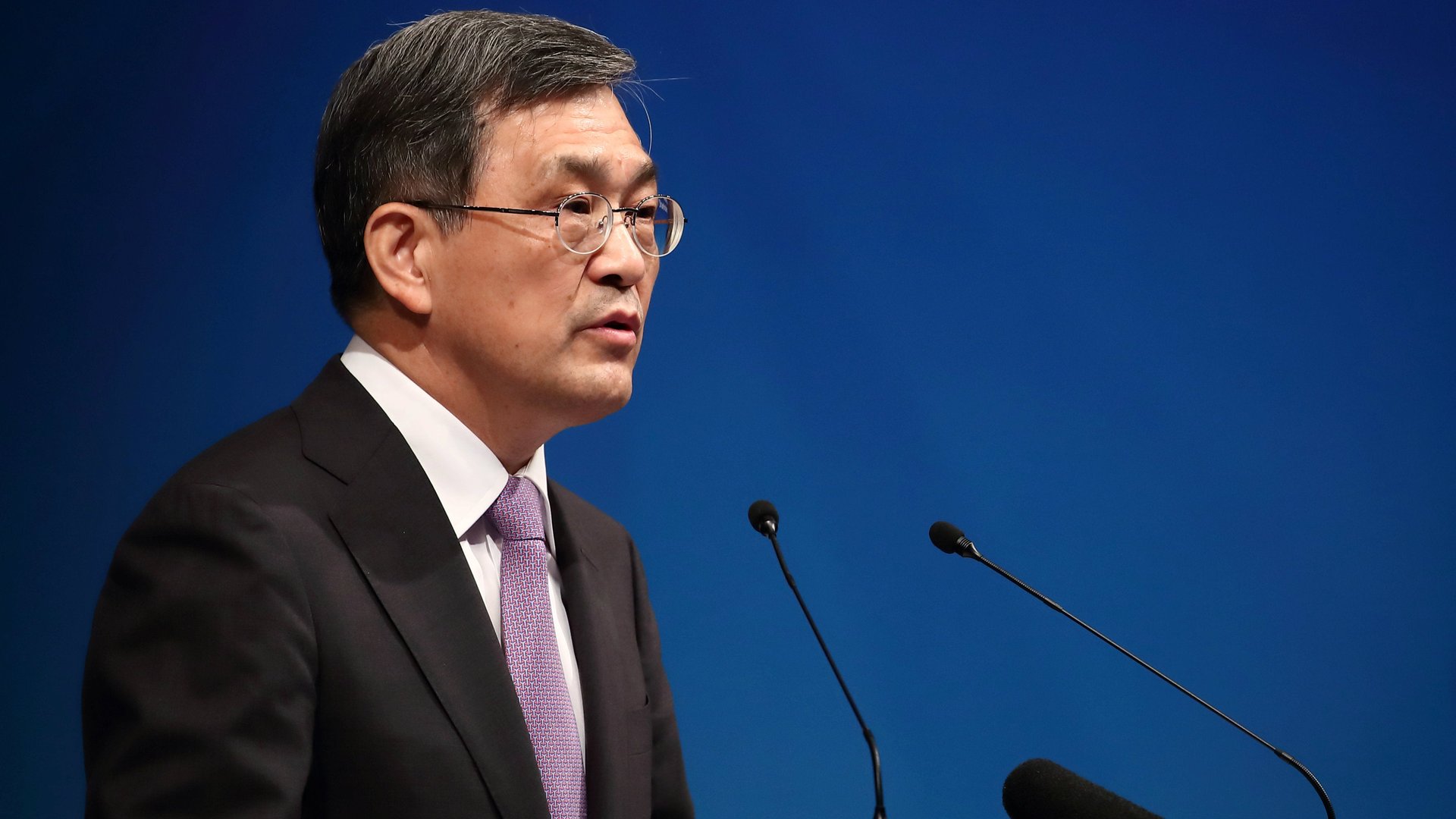Samsung’s leadership drama hasn’t stopped it from having a dream earnings run this year
In July, Samsung Electronics reported an all-time record for operating profits of $12.3 billion for the three months through June. On Tuesday (Oct. 31), it surpassed that by posting operating profit of 14.53 trillion won ($12.9 billion) for the quarter ended Sept. 30.


In July, Samsung Electronics reported an all-time record for operating profits of $12.3 billion for the three months through June. On Tuesday (Oct. 31), it surpassed that by posting operating profit of 14.53 trillion won ($12.9 billion) for the quarter ended Sept. 30.
Clearly, leadership drama that has included the criminal conviction of the company’s de facto heir hasn’t done much, at least in the short term, to dent the company’s financials.
The bulk of that, as in previous quarters, came from Samsung’s semiconductor and display units, with the former businesses accounting for some 70% of operating profits. Together, they are more profitable than its IT and mobile communications division, which includes phones. The company is the only major manufacturer of OLED screens, which Apple is using for its iPhone X devices. It also has maintained a leading edge in technology for DRAM and NAND flash memory chips, both of which are critical components for consumer electronics. A shortage of DRAM and NAND has increased margins for Samsung and other memory makers in recent months.
Despite a tumultuous year, the company’s stock price has rallied continuously since early 2016, even as its phones began exploding and its executives were found embroiled in South Korea’s corruption scandal. From August 2016, when the Galaxy Note 7 first went on sale, through the conviction and sentencing of Lee this August, the company gained $85 billion in value.
However, this state of affairs might not last—the components business remains highly cyclical, and OLED and memory prices won’t remain where they are as competitors get in on the action. Still, the company said that for 2018 components are set to remain the strongest driver of earnings, and that it expects “conditions in the memory market are likely to remain favorable.”
Company watchers are also hoping Samsung will soon have news on a successor to Kwon Oh-hyun (pictured above), who abruptly announced last month he planned to step down as CEO and co-vice chairman in March 2018. His absence deepens a leadership void at the company’s top level—in August, Samsung vice chairman and de facto leader Lee Jae-Yong was sentenced to five years in prison for bribery. He remains in detention while the court considers his appeal. In addition to Lee, four other Samsung executives were sentenced to jail time on similar charges. Meanwhile, Lee’s father, Lee Kun-hee, remains the chairman of Samsung, but rarely has been seen since a heart attack in 2014.
Among the possible contenders to replace Kwon is Kim Ki-nam, president of the semiconductor division since 2014. According to Bloomberg, he’s worked closely with Kwon to grow the highly profitable business, and Samsung describes him as someone who’s been active in “advancing future technologies.” Perhaps Kwon was alluding to him when he said last month he needed to step aside so the company could “start anew, with a new spirit and young leadership.”
Other executives considered contenders also largely have expertise in hardware. But the company needs to do the hard work of transforming from a hardware leader to a pioneer in software.
The company is behind, for example, in artificial intelligence, one of computing’s next frontiers. Samsung’s Bixby voice assistant is said to trail Siri and Google Assistant in capability, and Apple and Huawei have released AI processors for their latest phones well before Samsung has. Catching up in this realm will require sustained, focused leadership—and if Lee can’t provide that from jail, Samsung better quickly name someone who can provide it from the office.
This post updated on Oct. 31 with Samsung’s third-quarter numbers.